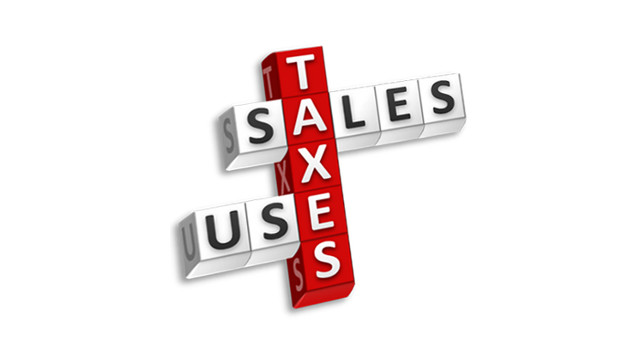By Gail Cole
For many of us, tax falls under the unenviable category of “unpleasant tasks that can’t be avoided.” Accountants are different, having chosen to work with taxes. But even accountants often avoid sales tax if they can.
“In my experience, many accounting firms, large, small, and in between, have viewed SALT (state and local tax) as a back seat item: A low-revenue, but high-risk service that they were reluctant to dive into,” says Chris Vignone, CEO of PM Business Advisors (PMBA).
You can’t blame them, because sales tax laws, rules, and regulations are Byzantine. If you don’t live and breathe sales tax — and even if you do — helping your clients become compliant can take an inordinate amount of time and effort. State and local tax departments can be a terrific resource, but frankly, some department of revenue websites are hard to navigate. Delving into the laws themselves can be even more frustrating. It can take hours to research one question, and sometimes the hours end with no clear answer.
Yet there are compelling reasons for accounting professionals to offer sales and use tax services today. Even small accounting firms likely have clients in need of sales tax help.
Sales tax is a growing problem for small businesses and small accounting providers
Although sales tax is a state and local issue, it can impact businesses based in other states and even different countries. As a result, sales tax is something small accounting providers are finding increasingly difficult to avoid.
In June 2018, the Supreme Court of the United States ruled in favor of the state in South Dakota v. Wayfair, Inc. The decision overturned a longstanding physical presence requirement, freeing states to impose a sales tax obligation on out-of-state businesses with no physical connection to the state (i.e., remote businesses). This was a game changer for businesses of all sizes and the accounting practitioners that support them.
Following the decision, every state with a sales tax, which is every state except Delaware, Montana, New Hampshire, and Oregon, enacted an economic nexus law. (Alaska has no state sales tax but does allow local tax and many localities have adopted economic nexus.) Though the specifics vary from state to state, economic nexus laws impose a sales tax registration and collection requirement on remote businesses meeting a certain threshold of sales activity in other states. You can find state-specific details in our state-by-state guide to economic nexus laws.
Determining whether a business has established economic nexus with a state is just the first step. Once a sales tax obligation has been created, businesses must comply with all applicable sales and use tax requirements in the state, including collecting and remitting the tax due on all taxable sales, validating exempt transactions, and filing returns. In some home-rule states, there may be local registration, collection, and filing requirements in addition to the state-level requirements. This is yet another reason small accounting practitioners now find it hard to exclude sales tax from their offerings.
Exempt businesses, marketplace sellers, and accountants can have sales tax obligations too
Keep in mind that exempt businesses aren’t necessarily exempt from economic nexus laws because many states include exempt transactions in their economic nexus thresholds. Thus, while a business with no taxable sales wouldn’t need to collect and remit sales tax, it could need to register, validate all exempt transactions with an exemption or resale certificate, and file returns. As any accountant who has worked in this area knows, mishandled exemption certificates are a common cause of negative audit findings.
Likewise, businesses that sell primarily or even exclusively through a third-party marketplace like Amazon or Walmart may face registration and filing requirements in some states. Although all states with a sales tax now require certain marketplace facilitators to collect and remit sales tax on behalf of their third-party sellers, some states also require marketplace sellers to register and file returns. And in some states, having inventory in a third-party facility (e.g., a marketplace fulfillment center) can give a seller a physical presence in the state and a sales tax obligation of their own.
Many businesses, including tax and accounting professionals themselves, are also facing new sales and use tax obligations because of changing circumstances, technology, and laws.
For example, with more businesses allowing employees to work from home since the onset of COVID-19, the world’s remote workforce has grown considerably. During the early stages of the pandemic, a number of states said they would not base sales tax nexus on the presence of employees working from their home if the pandemic prevented them from working as usual in another state. But some states (e.g., Indiana) have allowed these temporary measures to lapse and now treat employees working remotely in the state as a nexus-triggering situation. And some states are reviewing policies now that many companies have called employees back to the office.
Furthermore, the transition to remote work forced many businesses to adopt new technologies, because paper documents and on-site computer networks can’t be accessed by employees working from home. Digitalization can untether employees from the office but also exposes businesses to complex digital product and service tax laws.
In short, more businesses are being impacted by sales and use tax laws in more states than ever before — even small businesses that work with small accounting firms. In fact, sales tax is becoming an unavoidable problem for small practices that would prefer not to address it. With clients increasingly asking for help, accountants basically have two options: Say “no” and lose clients or find a way to adapt.
To help these clients, small accounting practitioners should consider incorporating sales tax compliance services into their practice.
How small accounting providers can help clients with sales tax
There are three possible approaches:
- Refer clients to a sales tax software provider
- Use sales tax compliance tools
- Get certified to implement the solutions offered by your technology partner
Refer clients to a sales tax software provider
Referring clients to a sales tax software provider like Avalara allows you to help your clients without getting into the weeds of sales tax yourself.
As noted above, doing what’s necessary to ensure your clients are in compliance can consume a lot of resources, especially if this is a new area for you. Advising clients to work with a company that specializes in facilitating sales tax compliance can be a great way to add value to your clients without bringing on additional staff or siphoning existing employees from other tasks.
Chris Vignone of PMBA thinks the Wayfair decision will transform accounting practices: “I expect the demand for sales and use tax advisory services and filing is going to explode as businesses realize the risks of noncompliance. Firms that add Avalara Managed Returns for Accountants will be ready to serve these clients and build a successful sales and use tax practice, with strong revenue, low risk, and no increased burden on staff or resources.”
Avalara has solutions tailored to small, midsize, and enterprise businesses, different industries, and varying compliance requirements including business registrations, returns and reporting, and tax research. You can advise your clients on the products and services that will most benefit them today and as they grow.
Use sales tax compliance tools
If you decide to provide advisory or compliance services yourself, consider using time-tested tools developed for accountants by companies that specialize in streamlining tax compliance.
Every client has unique needs. Growing companies may need help managing business licenses. Companies selling a variety of products and services into numerous jurisdictions may need help determining taxability rules, and a subscription to a sales and use tax research tool can be an enormous time-saver. Depending on the nature of your practice, you may find it best to use an end-to-end sales tax solution.
According to Chris Vignone, “With the new automated, cloud-based systems from Avalara, firms can serve the needs of their clients whether they have sales tax expertise or not, without burdening or expanding their staff, and reduce the risks inherent to sales tax filing.”
The specialty ecommerce advisory firm Catching Clouds, an Acuity Company, once spent a lot of time entering data, preparing and filing returns, and ensuring clients were in compliance. “With Managed Returns for Accountants, we’ve eliminated these time-wasting processes, and reduced risk, and now can better use the time saved on strategic business advisory and management services,” says CTO and Ecommerce Practice Lead Scott Scharf.
Get certified to implement the solutions offered by your technology partner
Though many accountants may initially hesitate to delve into sales tax compliance, sales tax is a fascinating area that can draw you in and leave you wanting more.
If you’re already partnered with Avalara, you can deepen your sales tax knowledge and offerings by joining the Certified Implementation Partner (CIP) program. This enables you to receive ongoing training, education, and support for implementing products for your clients from your sales tax software provider.
The more you know, the better you can advise your clients. “One of the biggest challenges clients have is determining which questions they need answers to,” says Dan Luthi, chief operating officer of Ignite Spot Accounting, which offers small business accounting and outsourced CFO services. “The more they understand, the better questions they ask — which ultimately helps us make them more successful.”
And of course, every successful accounting practice is built on successful clients.
Automating tax compliance services can benefit even the smallest accounting practitioners. Learn more about sales tax solutions and opportunities for accountants.
Thanks for reading CPA Practice Advisor!
Subscribe Already registered? Log In
Need more information? Read the FAQs
Tags: Firm Management, Sales Tax





